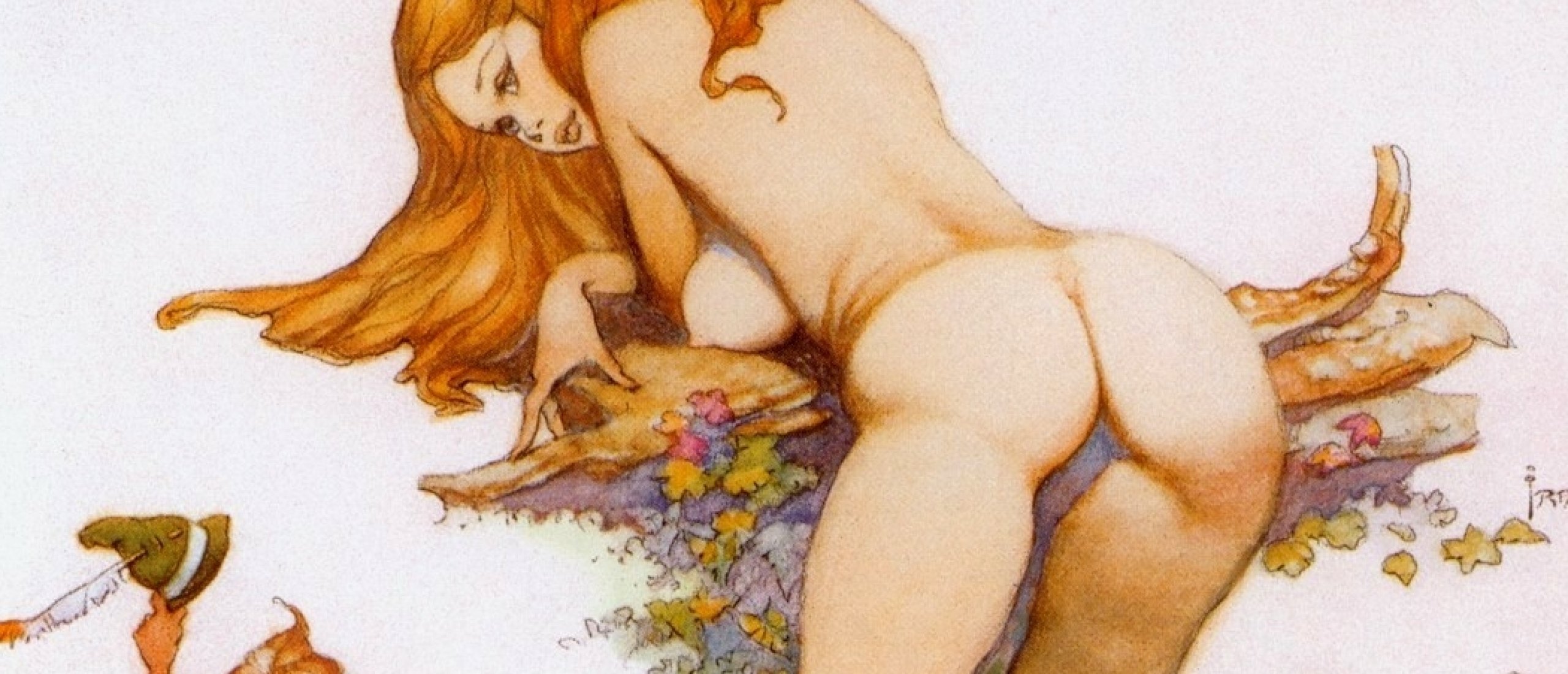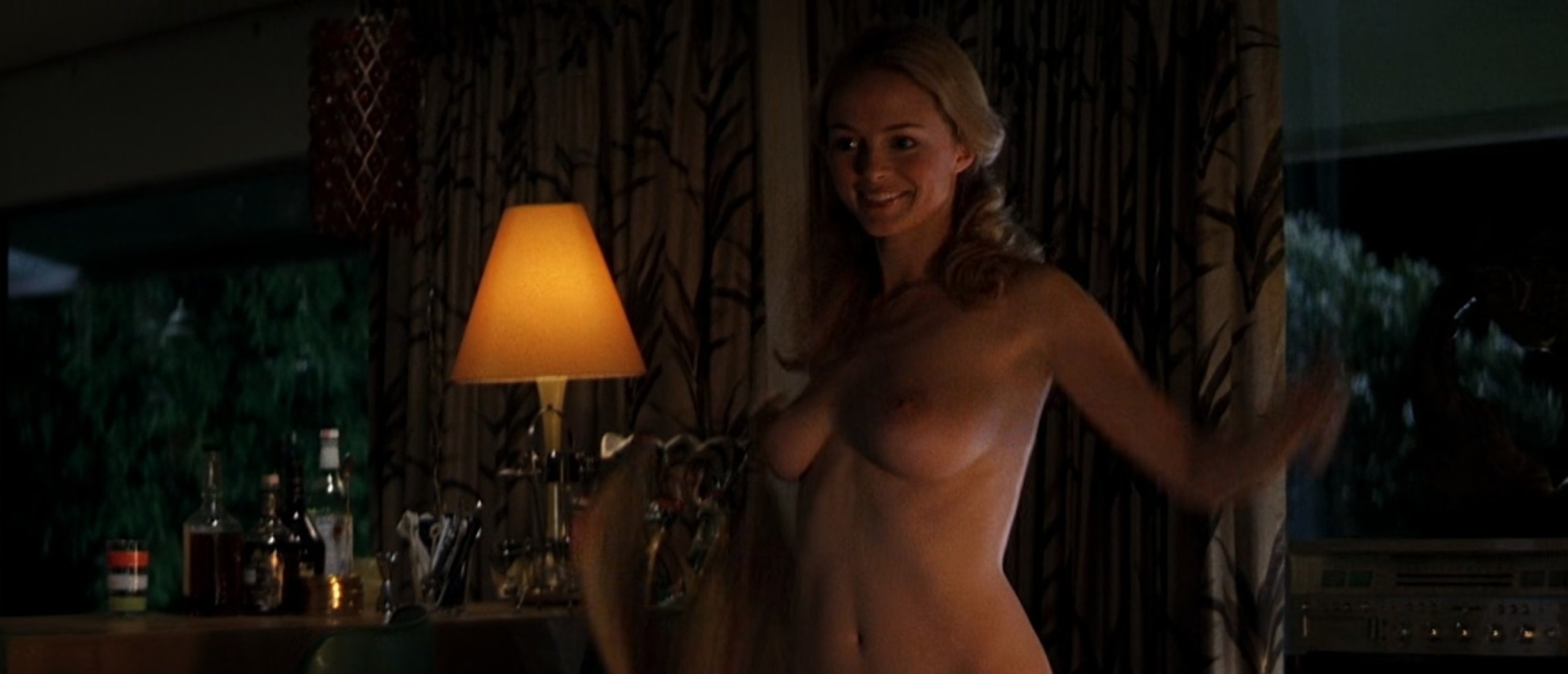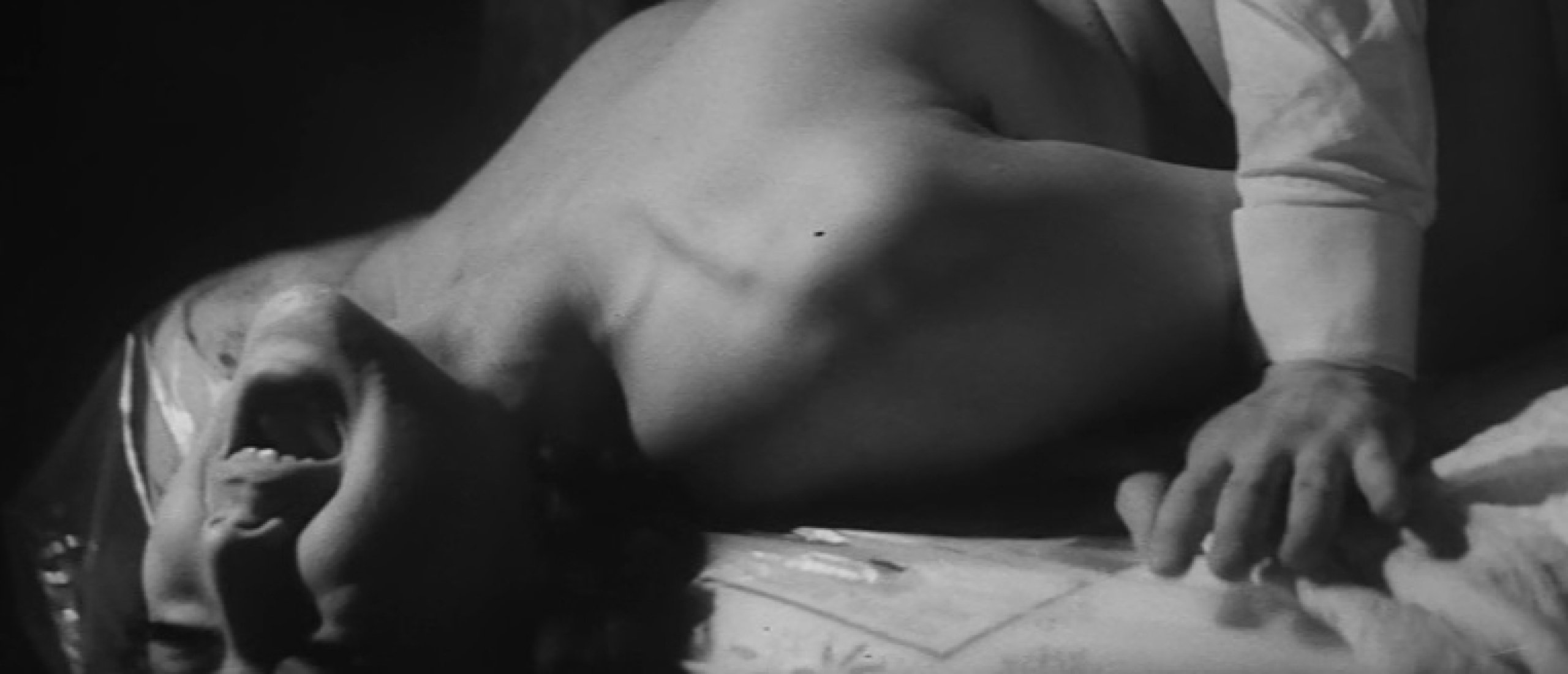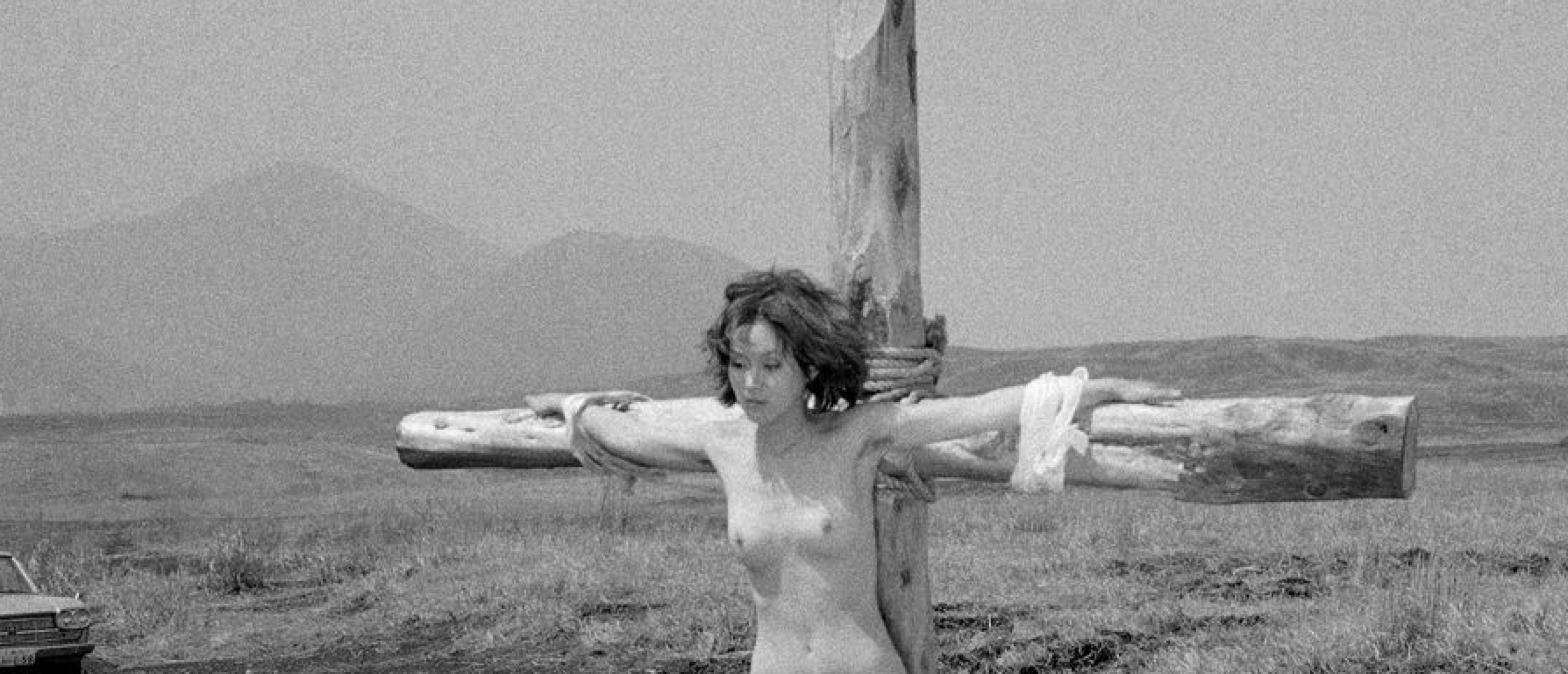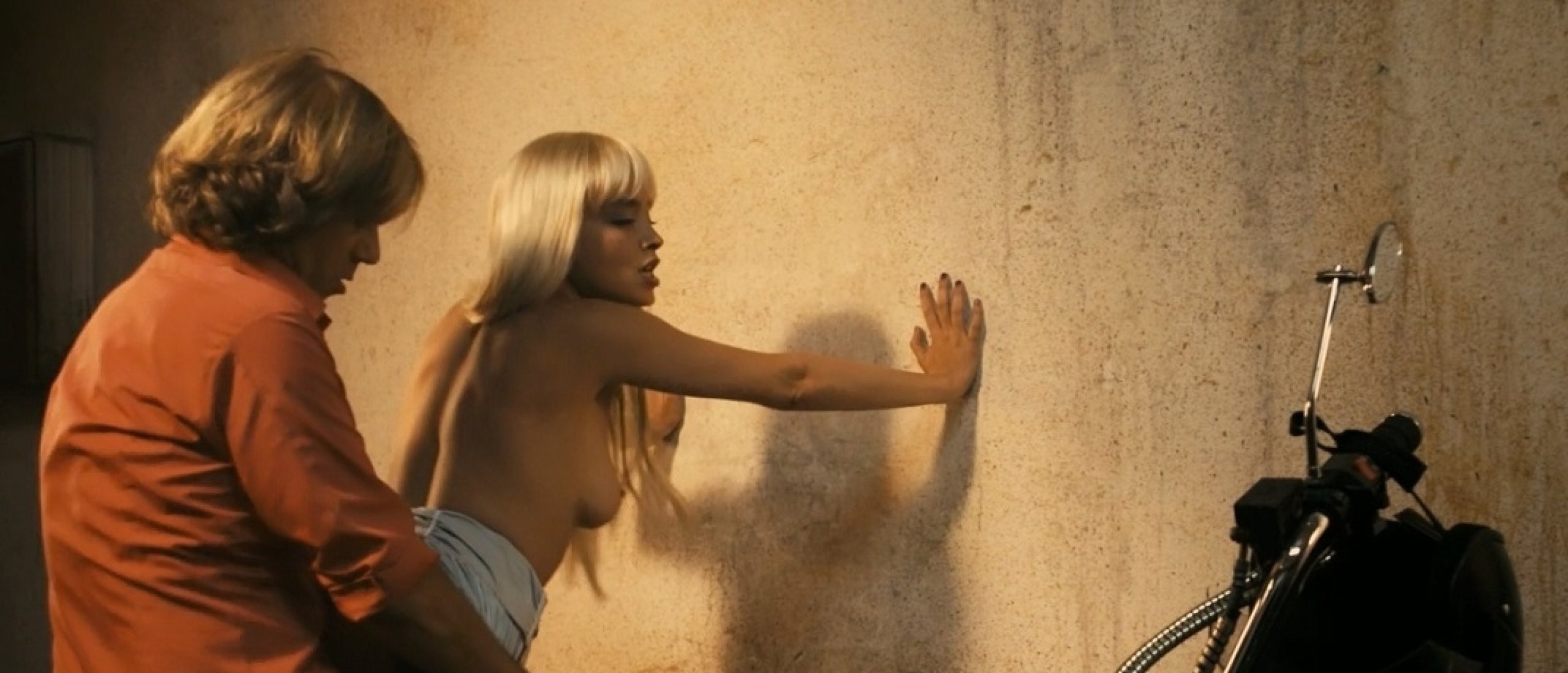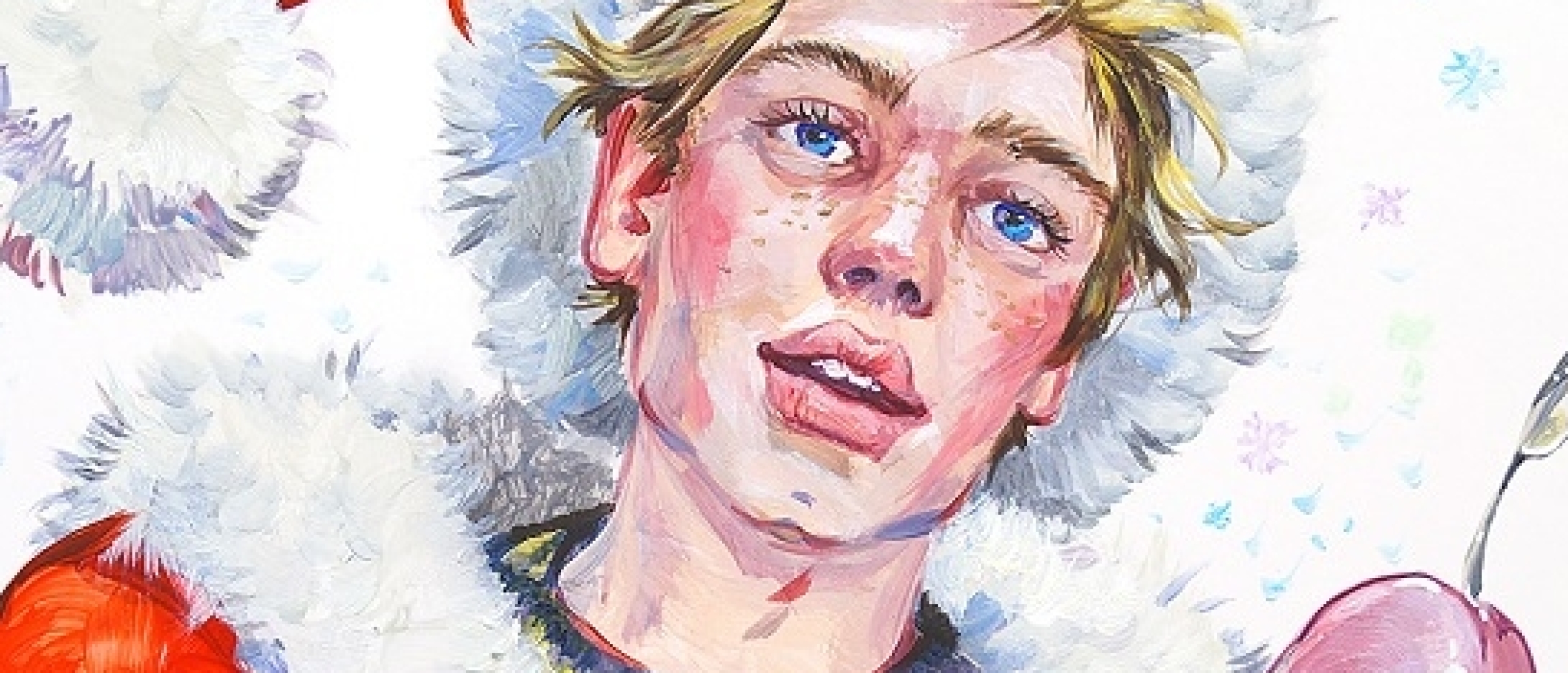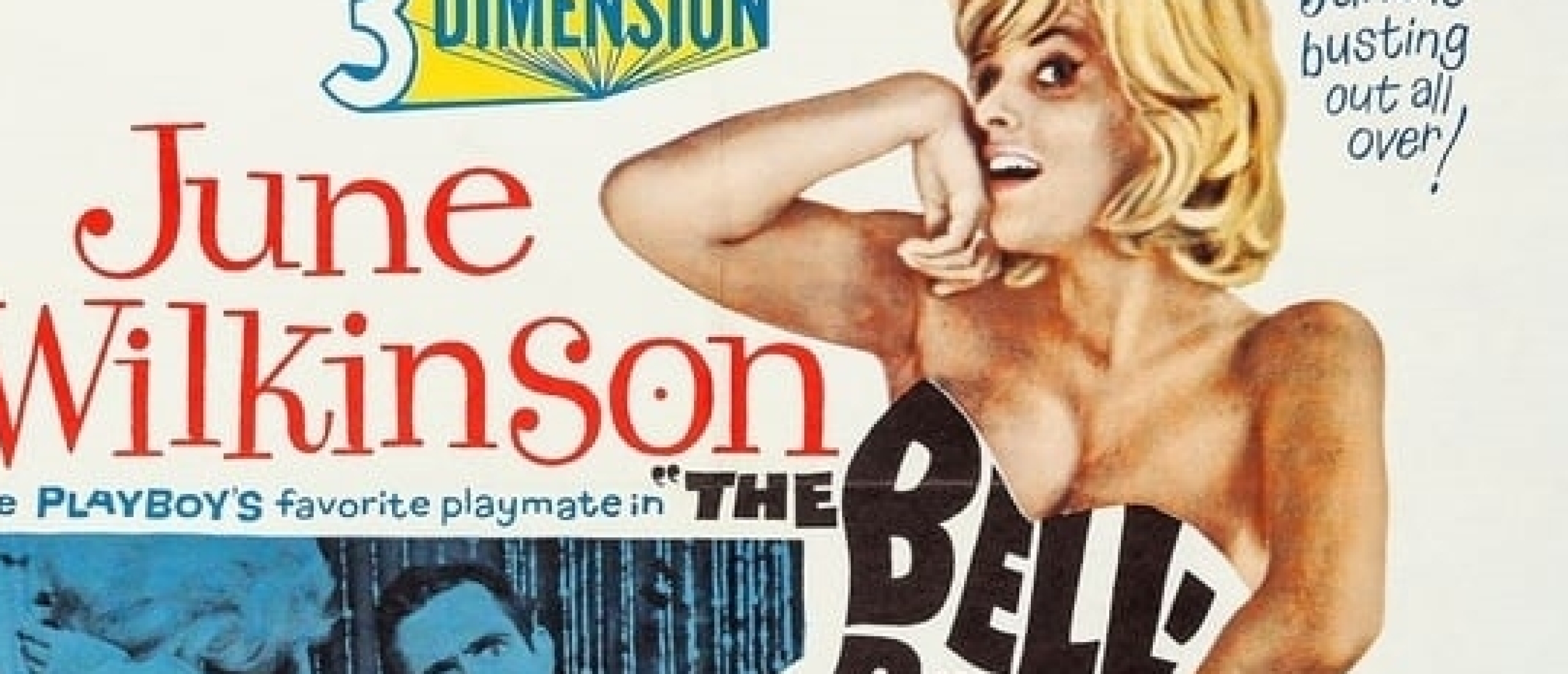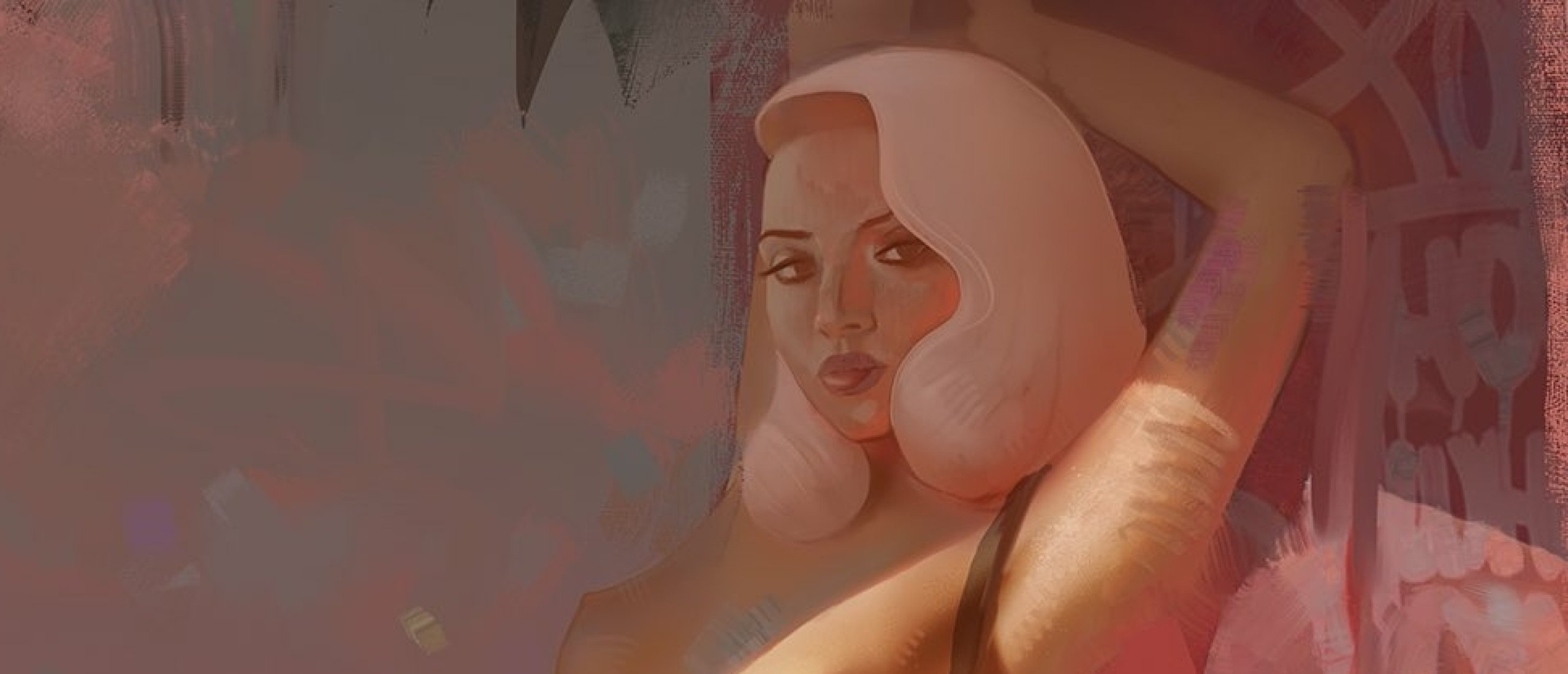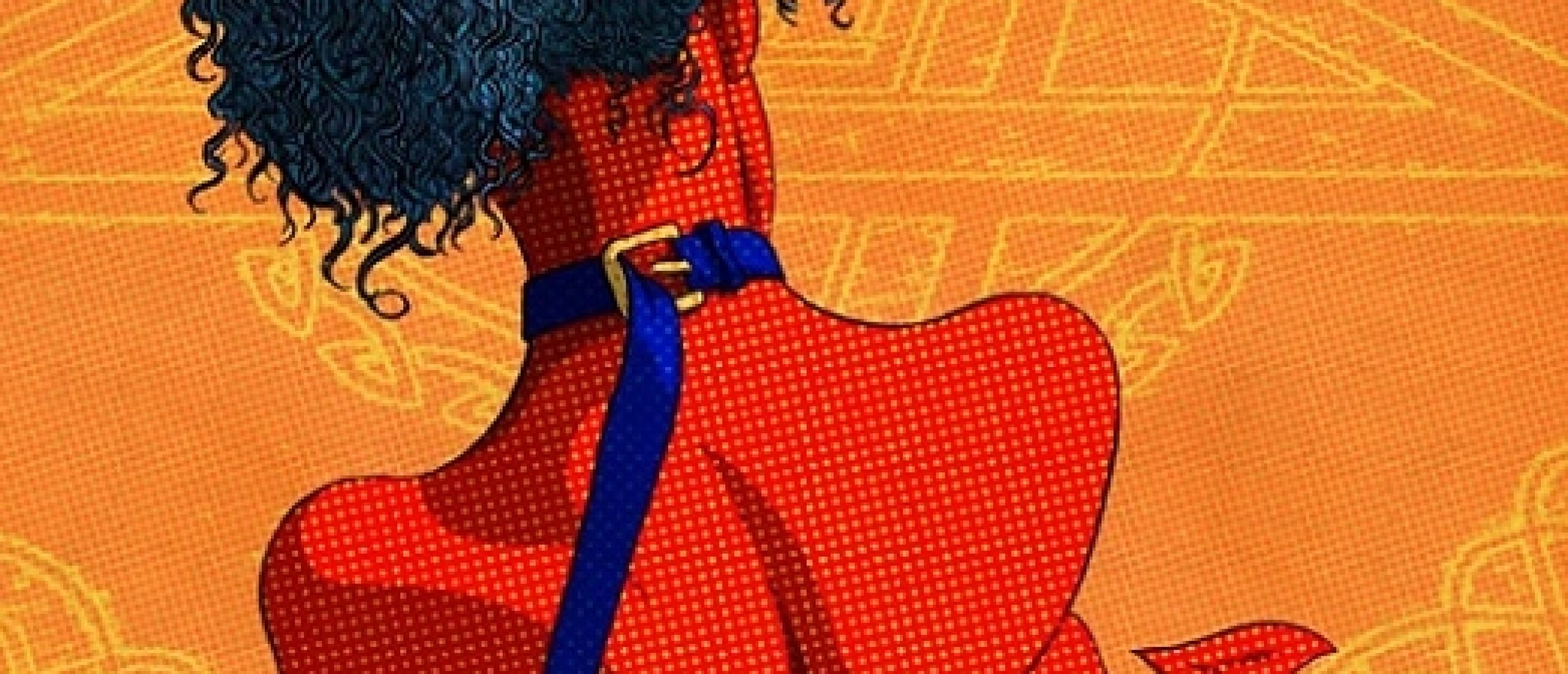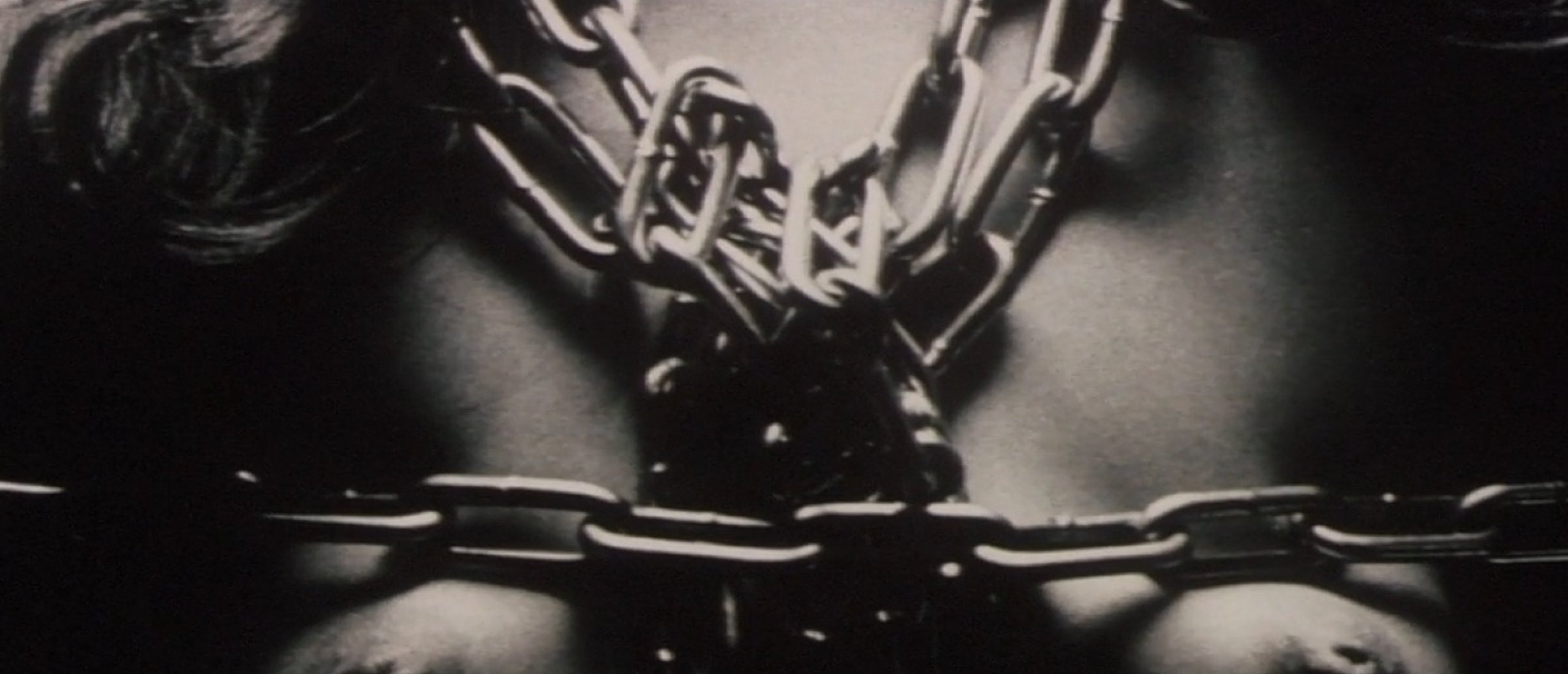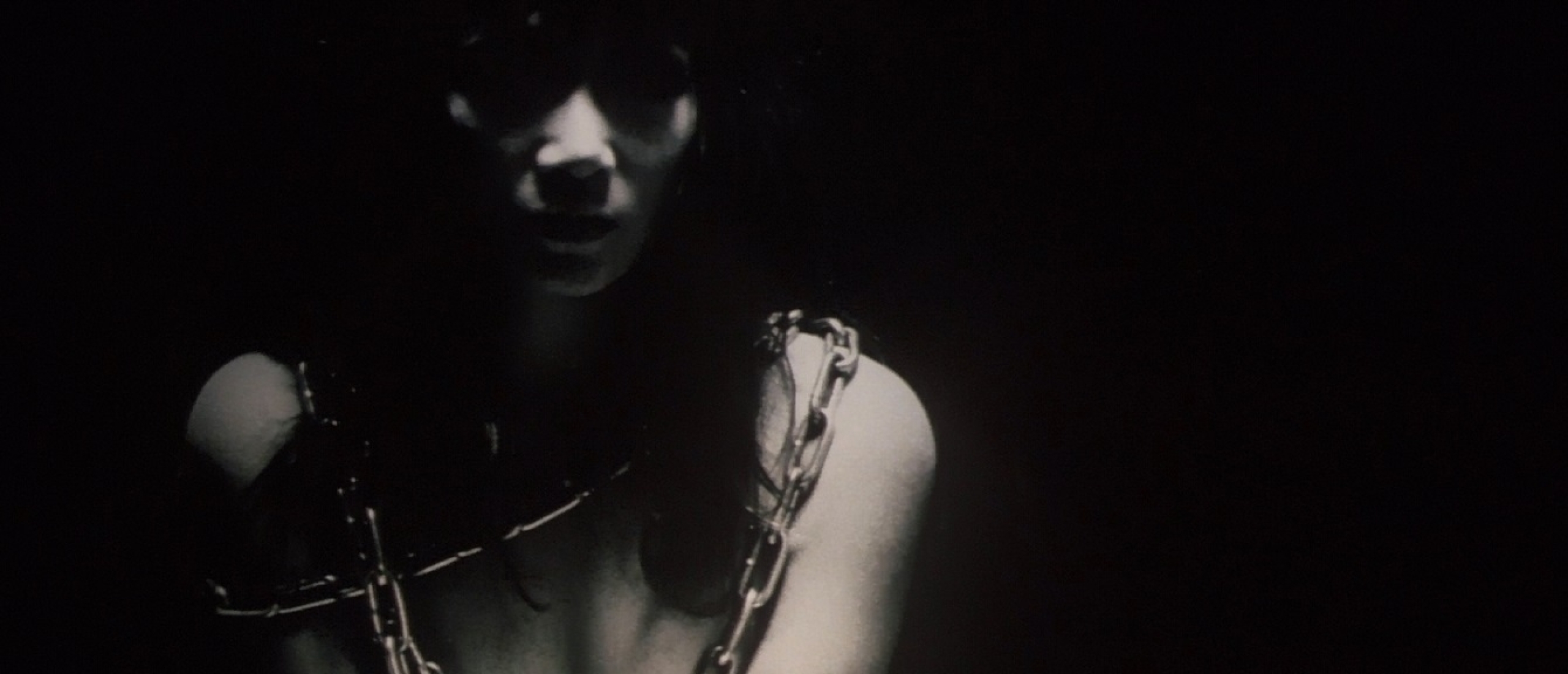
Based on the novel by Edogawa Rampo, Blind Beast (盲獣, Mōjū) is a 1969 production by Yasuzo Masumura, Japanese filmmaker, who directed around 58 films in various genres. Although not considered a pinku eiga by some scholars, Blind Beast was produced in the golden age of this genre. As the film is based on a work by Edogawa Rampo, one of the fathers of the ero guro nansensu, and presents scenes of sadomasochism in a context in which the grotesque and the absurd predominate, we can bring Blind Beast closer to this Japanese trend.
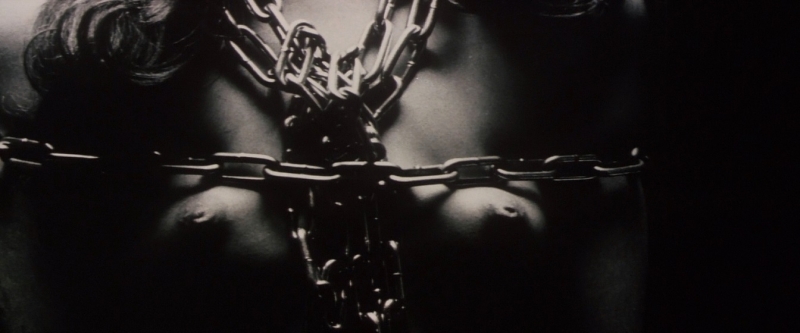 Fig.1.
Fig.1.
Plot
The movie's plot is about Aki (played by Make Midori), a model of artistic photographic nudes who is kidnapped by Michio (played by Funakoshi), a blind sculptor, who declares he wants to carve a statue of her. She tries to run away, but is held back by Michio and his mother. Aki wakes up in the artist's studio surrounded by massive sculptures of buttocks, eyes, noses, mouths, legs, arms, ears and breasts that cover its walls. Blinded by being held in the darkness of captivity for many days and after several escape attempts, one of them resulting in the death of Michio's mother, Aki finally gives in to the sculptor's wishes. The two begin a journey of sadomasochistic pleasures, in which they bite and tear each other apart. In one scene, Aki is tied by ropes while Michio whips her, in another she has her leg pierced by a dagger. The frenzy of pain and pleasure culminates in Aki 's request to have her limbs amputated. Michio, shortly after fulfilling Aki 's wish, commits suicide with a blade in his own stomach, falling dead on the model's shattered body.
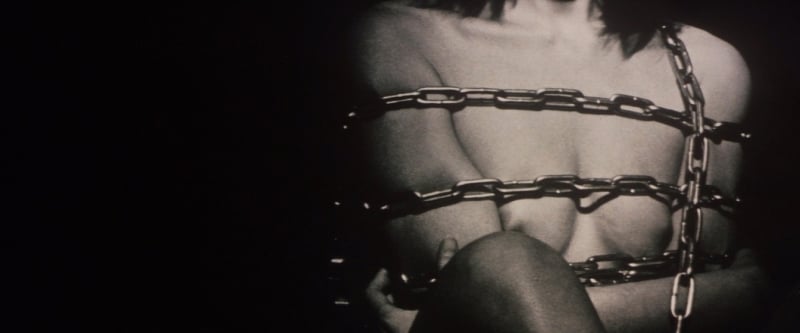 Fig.2.
Fig.2.
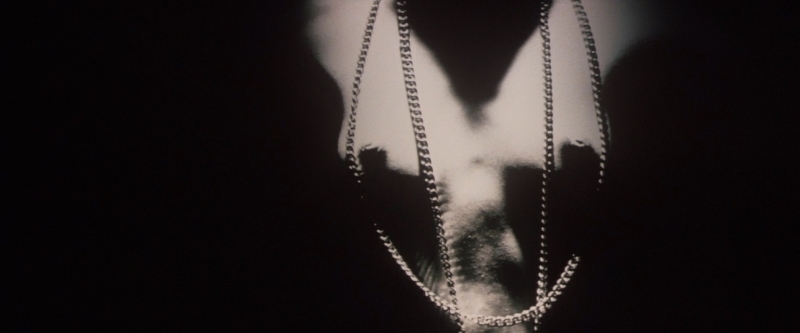 Fig.3.
Fig.3.
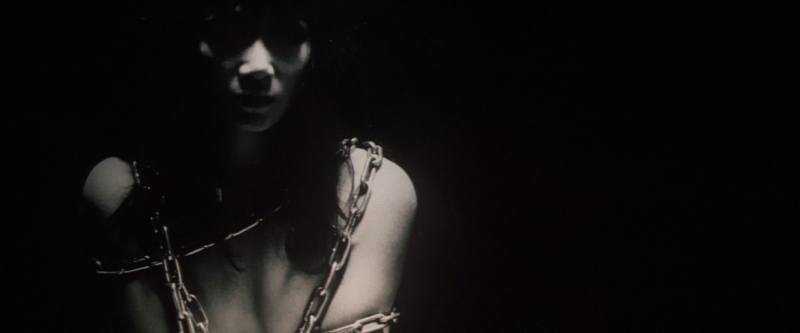 Fig.4.
Fig.4.
Urge to Possess
Few films got it to take so far away the Georges Bataille's observation regarding the continuity of beings: “Possession of the beloved object does not imply death, but the idea of death is linked with the urge to possess. If the lover cannot possess the beloved he will sometimes think of killing her; often he would rather kill her than lose her. Or else he may wish to die himself.” (BATAILLE, Georges. Death and sensuality: a study of eroticism and the taboo. Walker and Company. New York, 1962, p. 20).
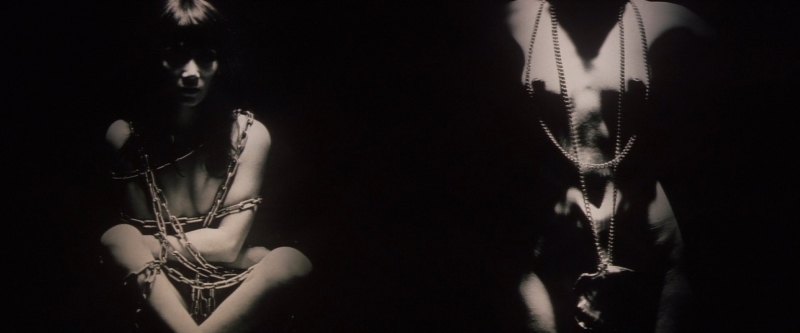 Fig.5.
Fig.5.
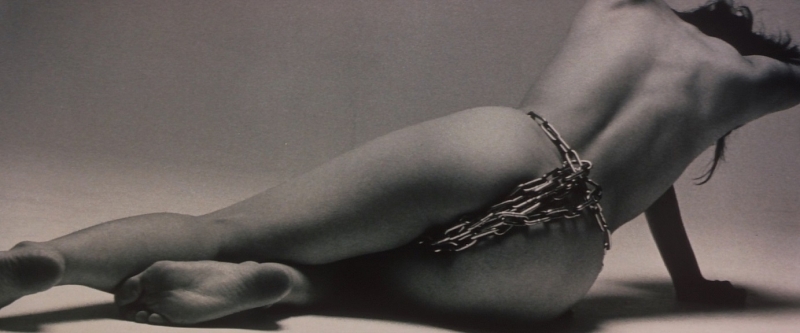 Fig.6.
Fig.6.
Obscenity Fragmentary
In visual terms, the result of this fury is the laceration of the body, which in the film appears the moment Aki wakes up in Michio's studio surrounded by anatomical fragments exposed on its walls. We would thus have a kind of “obscenity fragmentary”, expression of Dennis Hollier created, when to analyze like Georges Bataille work the speech anatomical at Documents magazine: “The ‘critical’ dictionary in Documents through semantic concentration produces a sort of erection of the described organ, an erection at the end of which the organ itself, as if by scissiparity, detaches itself from its organic support.” (HOLLIER, Denis. Against Architecture: The Writings of Georges Bataille. The MIT Press. Cambridge, Massachusetts, 1989, p. 79).
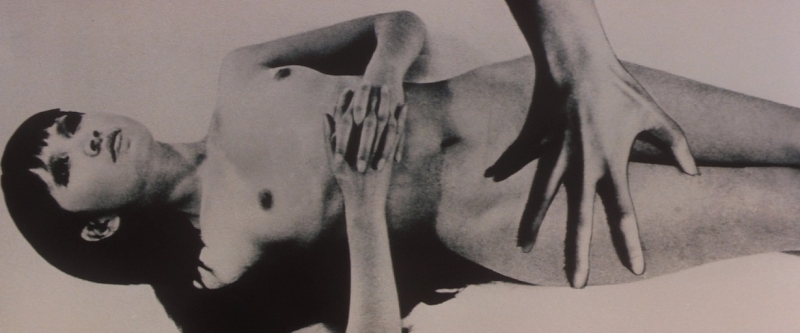 Fig.7.
Fig.7.
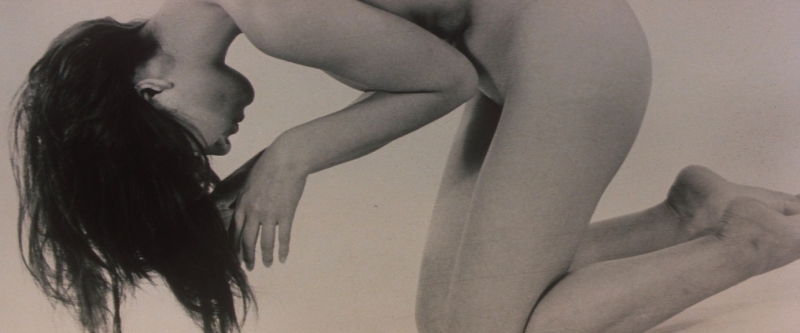 Fig.8.
Fig.8.
Animal Instincts
Moved by and to pain, Aki reproduces this same principle, applying it to her body. Her dismantling not only decrees the end of any “use” your body could have, but also makes possible the violation of your discontinuous individuality. The search for death thus becomes a passion for the continuity that frees, since “death, the rupture of the discontinuous individualities to which we cleave in terror, stands there before us more real than life itself.” (BATAILLE, Georges. Death and sensuality: a study of eroticism and the taboo. Walker and Company. New York, 1962, p. 21). Such truth is opposed to rational knowledge and embraces, through blindness, the happiness that animal instincts offer as absurdity, disorder and suffering.
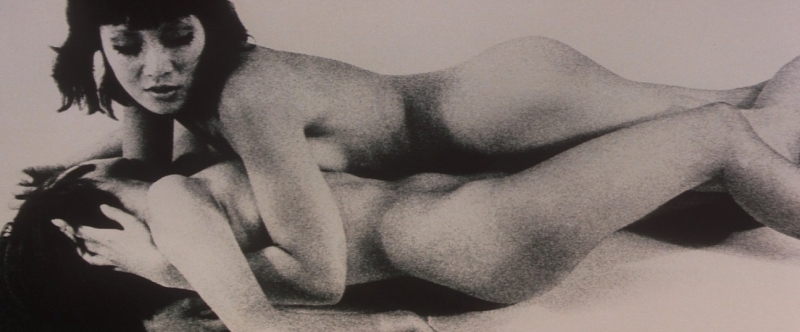 Fig.9.
Fig.9.
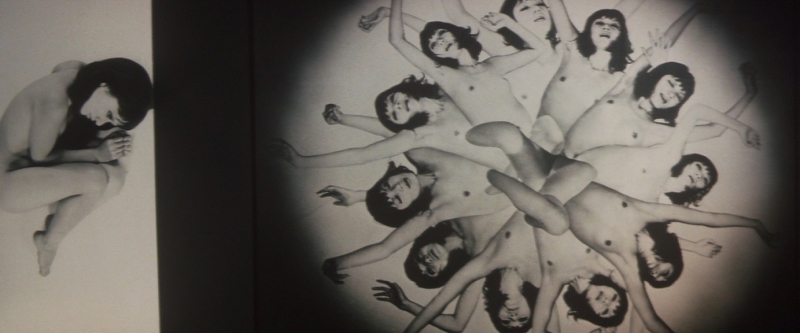 Fig.10.
Fig.10.
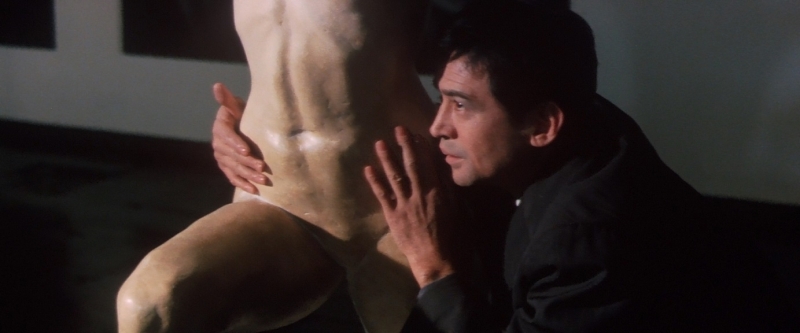 Fig.11.
Fig.11.
Affirmation of Death
In a way, Blind Beast is not simply a celebration of pain and pleasure, but an affirmation of death as the path that unifies all beings, since “this way of seeing the matter is not the first that springs to mind, yet death, in that it destroys the discontinuous being, leaves intact the general continuity of there outside ourselves” (BATAILLE, Georges. Death and sensuality: a study of eroticism and the taboo. Walker and Company. New York, 1962, p. 21).
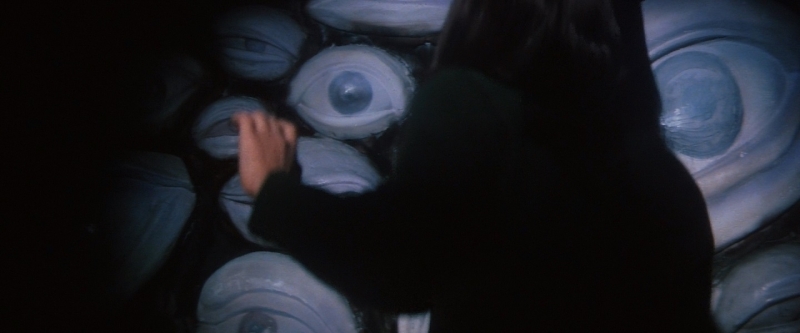 Fig.12.
Fig.12.
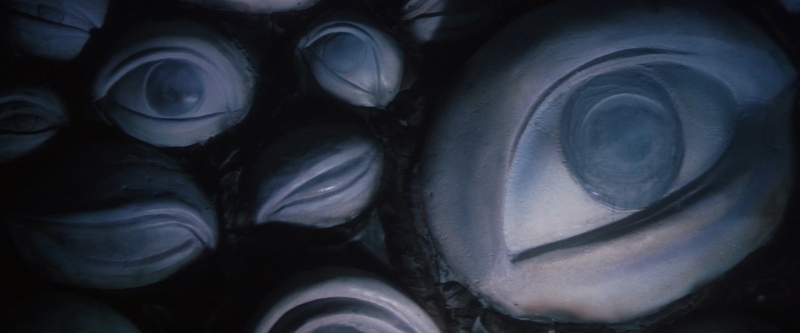 Fig.13.
Fig.13.
Continuity of Existence,
The death does not affect us, because it is the continuity true, the one that was before our existence and will remain the same after our departure: “What I want to emphasize is that death does not affect the continuity of existence, since in existence itself all separate existences originate; continuity of existence is independent of death and is even proved by death” (BATAILLE, Georges. Death and sensuality: a study of eroticism and the taboo. Walker and Company. New York, 1962, p. 21).
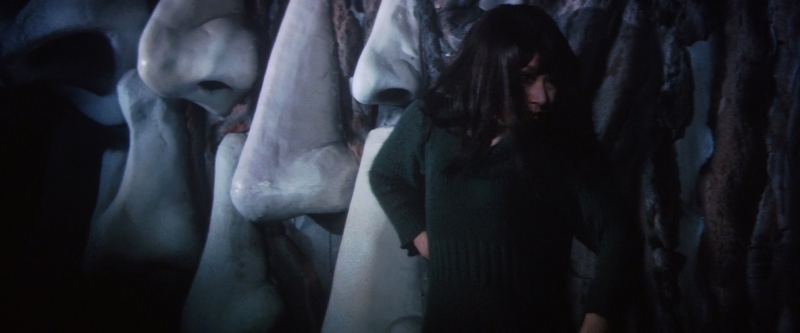 Fig.14.
Fig.14.
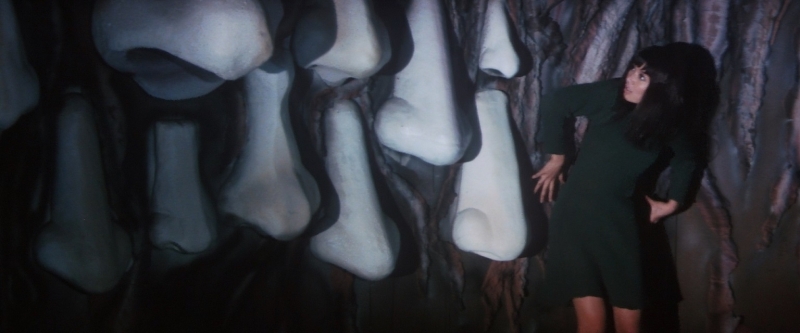 Fig.15.
Fig.15.
Annoy the Viewer
Blind Beast not only successfully fulfills all of Bataille's statements, but also manages to annoy the spectator, removing from his passivity, by confronting him with excess, that which is opposed to rationality and usefulness.
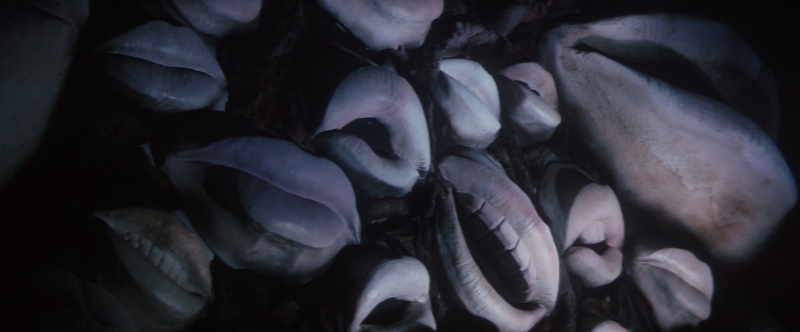 Fig.16.
Fig.16.
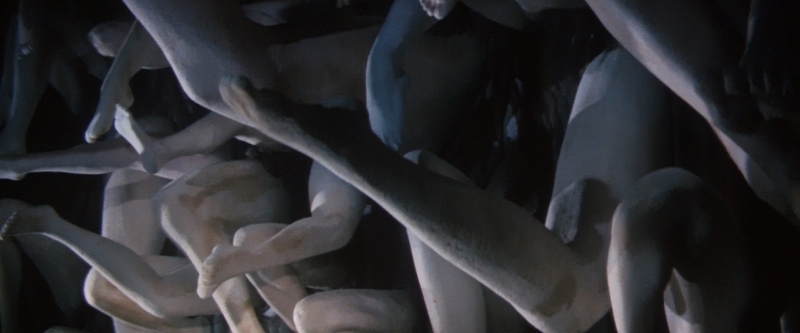 Fig.17.
Fig.17.
The Premium version of this 'Blind Beast ' article includes more pictures and also a sensual poem on the film...
Click HERE for an article of the author on the rise of Pinku eiga
Let us know your thoughts on Blind Beast in the comment box below....!

